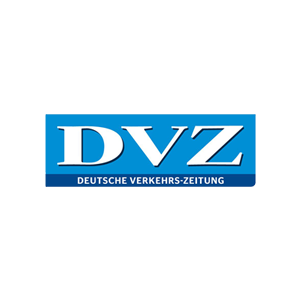Small and medium-sized enterprises face new costs: From the end of this week, the 1st of July, Sunday 2018, a toll for driving with trucks weighing 7.5 tons and more will also be due on all federal highways in addition to the motorway toll. Only electrical vehicles are exempt from the toll obligation. This will increase the total toll route network in Germany from 15,000 to around 52,000 kilometers.
The German Freight Forwarding and Logistics Association (DSLV) is now warning of the consequences of the toll expansion. According to the DSLV, industrial and trading companies are threatened with a significant increase in the price of their national general cargo transports. This means that freight forwarders’ costs for general cargo will increase by up to 1.3 percent, depending on the individual toll route share. This is the result of an expert opinion commissioned by DSLV from the consulting firm Forlogic. The president of the DSLV, Mathias Krage, announced to the “Welt” that the association members would pass on the costs “one to one to the customers”.
Additional toll increase as of January 1, 2019
The increase in toll rates will have an even stronger impact in the upcoming year. “The total toll cost burden of a groupage consignment will increase by an average of 65.1 percent from 1 January 2019, which will increase the total cost of an average consignment in general cargo logistics by 2.1 percent,” states a press release by the German Freight Forwarding and Logistics Association.
But that’s not all: an estimated 30,000 companies will encounter the toll for the first time starting next week. These are mainly craft businesses and small traders.
Saloodo! has compiled an overview of the most important questions and answers for companies that must deal with the subject of tolls for the first time. Click here for toll information.
What income does politics expect?
So far, the truck toll has generated less than four and a half billion euros per year. The Federal Ministry of Transport expects additional revenues of up to two billion euros per year from the toll obligation on all federal highways. According to Federal Transport Minister Andreas Scheurer (CSU), these will flow back into the transport infrastructure.
In fact, there are many indications that shippers will have to adjust to higher costs for general cargo transports. In the future, it will probably be more important than ever to make comparisons and make quick strikes with a suitable transport offer.
All information on truck tolls on federal highways in Germany
From 1 July 2018, the truck toll will also apply to all federal highways in Germany. Many companies that only operate regionally will then also be subject to tolls and will have to deal with this topic for the first time. On this page we have compiled a list of the most important questions and answers about tolls on national roads. If you have a question but can’t find the answer here, please write us – we will then, together with the logistics experts of Saloodo! find the answer.
When does it start?
From July 1, the truck toll will also be due on all federal highways in Germany. At present, it applies to around 12,800 kilometres of motorways and around 2,300 kilometres of motorway-like main roads. In July, an additional 40,000 kilometers on main roads will be added.
Also many companies, which are mainly regionally active, are then asked to the cash. Provided, of course, that they have the appropriate vehicles in use. Commercial vehicles weighing 7.5 tonnes or more and vehicles with trailers weighing 7.5 tonnes or more are subject to tolls. So the rule of thumb is that if I weigh more than 7.5 tons, I have to pay tolls – regardless of whether my vehicle is loaded or unloaded.
Anyone who is already registered with Toll Collect, the toll system operator commissioned by the Federal Office for Goods Traffic (BAG), and whose vehicle is equipped with an on-board unit (OBU) for automatic toll reporting, does not have to pay any further attention – apart from the additional costs resulting from more kilometers of use subject to toll.
How is control carried out?
All of us already know the control bridges over motorways. On the national roads, the toll obligation is monitored with the aid of blue control columns almost four metres high – in addition to mobile controls by FOPH employees. There should be a total of around 600 such control pillars on federal highways. The first pillars of some federal highways that are already subject to tolls are already under control.
How can I report that I drive a toll route?
There are three methods of reporting the toll route:
– Flexible booking with the app: Since the end of 2017, booking has been possible online via desktop PCs and mobile via smartphone and tablet. This has replaced the previous “Internet posting”. Since February 2018, the toll system operator has also provided an app with which toll routes can be entered via smartphone or tablet while on the move. The app is available for Android, iOS and Windows Phone.
– Notification via toll terminals at service stations and petrol stations: An overview of all tollbooth terminals can be found here: https://www.toll-collect.de/en/toll_collect/service/mautstellen_finden/mautstellen_finden.html
– Automatic toll collection with an on-board unit.
Is an on-board unit worthwhile for me?
Companies with heavy commercial vehicles that have so far only occasionally used motorways and highway-like highways continue to report to Toll Collect online. Companies that are already “toll experienced” and also drive on national roads in addition to motorways should ask themselves whether they should equip their vehicle better with an OBU – quite simply in order to save time. The device itself is free of charge and is provided by Toll Collect, installation is paid for by the vehicle owner. To receive an OBU, you must first register with Toll Collect and then register your vehicles. To be honest, however, it will now probably be quite tight to get appointments from Toll Collect’s service partners for installation in good time.









